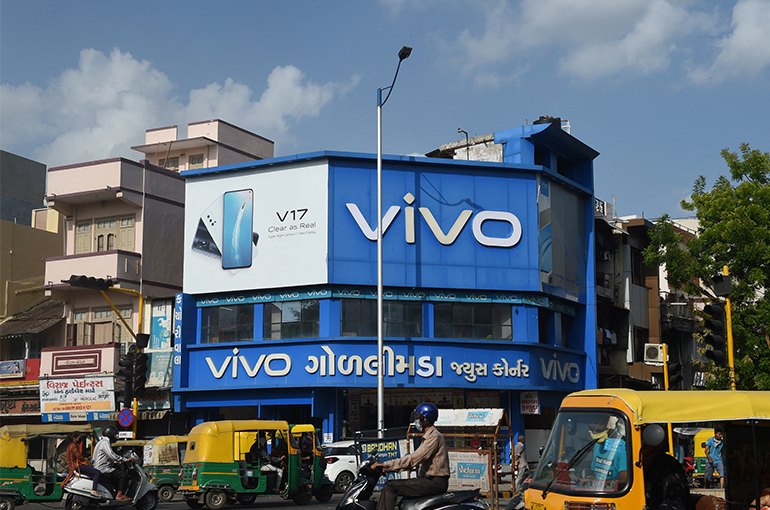 Chinese Phone Brands Face Localization Pressure in India
Chinese Phone Brands Face Localization Pressure in India(Yicai) June 17 -- Chinese handset makers are facing challenges with more demanding localization requirements in India along with the country's increasingly strict examination rules.
The India unit of Chinese smartphone giant Vivo Communication Technology will be sold to conglomerate Tata Group and become a joint venture to comply with the local government's requirement to have Indian senior executives and localized marketing networks, local media recently reported.
The government requires Tata to own at least 51 percent of Vivo's business in India and that a local manufacturer should lead the JV, the report showed. The pair's negotiations are in the later stages, but no agreement has been reached yet, with Tata interested in buying, while Vivo hopes the purchase price will be higher.
Vivo has not responded yet, but an industry insider said that the Indian government has issued signals, including raising the use ratio of India-made components in phone manufacturing and gradually replacing Chinese distributors with local resellers targeting the JV model proposed by Chinese handset makers to make phones "more Indian."
"We have also noticed this trend locally in India," the insider noted. "Amid the ongoing increases in the number of technicians hired by Chinese phone makers in their Indian plants, the number of those receiving localized training and cultivation is increasing," the person added.
The Indian government also encourages Chinese companies to ally with local electronics makers to produce handsets. Last November, Tata purchased the local business of Taipei-based original design manufacturer Wistron for USD125 million via its unit Tata Electronics and became the first Indian company to produce iPhones.
Faced with pressure from sudden probes, penalties, and the pursuit of so-called taxes, Chinese phone makers and China's electronics supply chain must choose localization, an insider close to Vivo's supply chains told Yicai. The Dongguan-based firm collaborates with Indian peer Micromax and has transferred part of its production facilities to the local company's unit Bhagwati Products, the person added.
"Vivo began its localized production in India in 2015 and bought land to set up factories there in 2018 when the surface-mounted technology
related to printed circuit boards also began to be done locally," a senior executive of the company previously said to Yicai. The country is a vital part of the globalization of Chinese brands, he added.
With its strengthened partnership with India's electronics supply chain, Vivo topped the country in shipments in the three months ended March 31, taking a 19 percent market share.
Editor: Martin Kadiev